- Home
- Andy McNab
The New Enemy Page 6
The New Enemy Read online
Page 6
This was something else that reminded Liam of his time in Afghanistan. He had been lucky enough to work closely with the Afghan National Army – the ANA – and one soldier in particular, Zaman Shah, had become a good friend. He’d not only helped him with his Dari, the local language where Liam had been deployed, but had saved his life.
‘One final thing,’ said Captain Owusu, and his voice lowered as if speaking conspiratorially. ‘A lot of these soldiers can seem a little bit, how shall we say, wired? The reason for this is because in Kenya, khat is legal. And for those of you who’ve never heard of it, all you need to know is that it’s a plant with stimulant properties. Imagine sipping on Red Bull and smoking cigarettes all day and you’ll have some idea of its effect. And if they’re not chewing it now, they definitely will be when they go up against Al Shabaab. You’ll probably be offered some too. All UK troops are banned from taking khat.’
The captain then turned to walk over to the Kenyan officers and soon the KDF soldiers were on their feet.
‘You ready for this?’ asked Waterman, who was at Liam’s side, looking at the lines of soldiers now staring back at them.
‘Not sure what I’m supposed to be ready for,’ replied Liam. ‘I worked with the ANA a fair bit. How different can it be?’
Waterman had no chance to answer as Biggs called the section together, splitting them away from the rest of the platoon.
‘Captain Owusu has advised us to work this in twos,’ he said. ‘That way we won’t be tripping over each other.’
‘Remind me again what we’re doing?’ asked Pearce.
‘Were you listening during the briefing earlier?’
‘Yes’ – Pearce nodded – ‘but I don’t think Bale was. Lots of big words were used and he struggles beyond two syllables.’
‘I’m not sure what’s more surprising,’ said Biggs. ‘That you were listening, or that you just used the word syllables.’
‘Fuck off,’ said Pearce.
‘Right.’ Biggs ignored Pearce’s grumbling. ‘For the benefit of everyone other than Mr Student of the Year over here, the next few days will involve us training these guys in CTR. Each pair will be given a small platoon to work with. Clear?’
Liam nodded, though deep down he was concerned. He was no trainer or instructor. So how the hell was he supposed to teach Close Target Reconnaissance to a bunch of Kenyan soldiers – some of them much older and apparently more experienced in combat than he himself was. He had to instruct them in how to sneak up on the enemy with minimal kit and collect intelligence, but this wasn’t like learning long division at school – there could be serious and potentially life-threatening consequences if the Kenyans were deployed without the skills they needed. And it was down to him – an experienced soldier, sure, but still only a nineteen-year-old – to make sure they acquired those skills and could put them into practice.
Fifteen minutes later and Liam, alongside Waterman, was standing in front of an expectant group of KDF soldiers.
‘So, you want to flip a coin to see who starts this off?’ asked Waterman.
Liam was about to say yes when he changed his mind. ‘No, I’ll get this going. May as well just jump in at the deep end, right?’
Waterman nodded, a faint grin etched on his face, then stepped back to allow Liam to take the floor.
Liam moved forward. To have so many eyes on him was unnerving. And though Waterman was all but a pace behind him, he felt very exposed. These soldiers were looking to him for leadership, guidance. Well, he thought, time to show that these fresh lance corporal pips weren’t given for nothing . . .
‘Scott?’
Liam glanced over to Waterman. ‘What’s up?’
They were both hunched up behind some bushes and observing, to their left and right, two four-man teams carrying out a CTR on makeshift positions held by the other two four-man teams. Darkness had descended and they were both using the head-mounted monocular night vision, a piece of kit now issued to all infantry soldiers and clipped to the front of their helmets.
‘Nothing’s up,’ replied Waterman. ‘And that’s my point. These guys are properly switched on. I’m impressed.’
Waterman had a point, thought Liam. Having instructed the soldiers on the finer arts of camouflage and concealment, he and Waterman had then outlined the role of each member of a four-man CTR team. With one as point man tasked to collect intelligence, one as a relay point between the point man and the rest of the company, and the two others in fire support in case things kicked off, they had then split their group into four teams of four. The aim was to give each one the opportunity to work together on a CTR, with two acting as the enemy while the other two carried out the recce without – hopefully – getting pinged.
Now, as they were heading into night time, the KDF soldiers were on to the practical side of things. And it was going very well. A part of Liam hoped it was in some ways down to his and Waterman’s knowledge and teaching, but he knew that the main praise lay with the soldiers. And one in particular had caught his attention.
‘They’re good,’ he said, ‘but Odull is doing this like he was made for it.’
Of the sixteen soldiers they had been allocated, Jacob Odull had stood out immediately. He was a tower of a man – Liam guessed he was around six foot six, built like a tank – and he had a laugh that rolled out of him like a bowling ball trundling its way to the pins at the end of the lane. Even though he could have only been in his early twenties, the other soldiers clearly held him in high esteem, looking to him as their natural leader.
‘You heard that one of his brothers was killed by Al Shabaab?’ asked Waterman.
‘Yeah,’ Liam answered. ‘He wants to join that special forces unit Owusu was on about.’
‘I bet he does,’ said Waterman. ‘Payback is a hell of a motivator.’
With the exercise drawing to a close, Liam and Waterman pulled the soldiers together to recap and then sent them off for some much-needed kip.
As they were leaving, a voice called out. ‘Lance Corporal Scott?’
Liam turned to find himself looking up at Odull. God, the guy was massive . . . ‘Odull?’
‘I would like to thank you for this training.’
Liam didn’t know what to say. He was, after all, just doing his job. ‘I hope it will come in useful,’ he said eventually.
‘It will,’ said Odull. ‘It will help us.’
‘Al Shabaab sound pretty serious,’ said Liam, then wished he’d kept his mouth shut. Pretty serious did no justice at all to what Odull had suffered with the loss of his brother. Liam himself had lost friends in battle, but to lose a family member was on another level completely.
‘Yes,’ said Odull. ‘They killed one of my brothers. I would like to return the favour many times over.’
Liam noticed a fierceness in the big man’s eyes. It was unnerving.
Odull spoke again. ‘My other brother, they kidnapped him also. I have no idea if he is alive or dead. Perhaps soon I will find out.’
Liam remembered what Captain Owusu had told them about the recent attack on BATUK. ‘He was taken from here?’
Odull nodded. ‘I am the eldest. It is my responsibility to get him back. My mother, all she does now is cry and pray for his return.’
‘Has there been any word from Al Shabaab?’ asked Liam.
‘Only ransoms and demands,’ said Odull. ‘We know only that the hostages, if they are still alive, are somewhere in Somalia.’
‘I truly hope that they are,’ said Liam.
Odull said nothing more and strolled off into the dark.
‘What was all that about?’ asked Waterman. ‘You looked very solemn.’
‘He has another brother,’ said Liam. ‘He was one of the soldiers kidnapped three weeks ago.’
‘Holy fucking shit,’ said Waterman.
‘I don’t think that even comes close,’ Liam replied.
The training had carried on as planned, but on the fourth evening the KDF soldiers
had suddenly been summoned. They’d grabbed their kit and left the camp in as much of a rush as they could achieve in their worn-out vehicles. It had got everyone talking, and Captain Owusu had called Recce Platoon to an unscheduled briefing. Now the whole of Recce Platoon was sitting together in one of the canvas shelters used at BATUK for briefing purposes. Even though the sun was setting, heat still seemed to radiate from the ground and the air was dead.
Captain Owusu was in front of the platoon. Behind him was a screen, and in front, a laptop attached to a projector.
‘Right, everyone, I’ll come straight to the point: what was originally a training posting is now for real. We have been informed by the KDF that a key Al Shabaab figure has been sighted close to the border. And what makes this even more interesting is that he is a British national.’
If the platoon was quiet before, it was deathly silent now. Liam leaned forward, not wanting to miss anything the captain was about to tell them.
‘What I am about to show you is the terrorist in question’s rise to fame. Some of it is graphic.’
Owusu bent down, fiddled with the laptop, and a few seconds later a movie started to play out behind him. He stepped back to allow everyone a good view of what was happening.
‘The man in question is Abdul Azeez,’ he went on. Liam watched as the footage showed a bearded man wearing a white shalwar kameez – a long baggy tunic and loose trousers – climb into the passenger seat of a Toyota pick-up. Armed with an AK47, the club badge of any self-respecting Al Qaeda terrorist, he smiled at the camera as though he was heading off on a family outing.
‘A British citizen,’ continued the captain, ‘his real name is actually Andrew Bradford. Brought up in Birmingham, he converted to Islam in his teens and changed his name.’
The scene shifted, and now the film showed Azeez standing with a group of other similarly dressed men who were all cheering and waving their own AKs in the air.
‘At the age of eighteen, he went to university and completed a degree in chemical engineering. On graduation, he purchased a round-the-world ticket and, so his parents believed, went off travelling.’
Again the movie changed, this time showing a group of men on their knees, all blindfolded, arms tied behind their backs. Walking up and down in front of them was Azeez. When he wasn’t smiling at the camera, he was poking the men with the barrel of his weapon.
‘Turns out that his “travelling” was little more than a clever way to get out of the country and into the thick of Al Shabaab’s activities in Somalia.’
When the captain’s voice fell silent, Liam watched as Azeez, a beaming smile still stapled to his face, turned his weapon on the kneeling men and opened fire.
‘We know that he rose quickly through the ranks, buoyed along by his charm and charisma, but also his brutality.’
With the murdered men now all on the ground, fresh bullet wounds bleeding their clothes red, Azeez then casually slipped a fresh magazine into his weapon and walked over to make doubly sure none of them would be getting up ever again.
‘He may still only be in his late twenties,’ said the captain, ‘but Azeez is a major player. He’s worked as a military commander and recruiter, and is rapidly becoming Al Shabaab’s poster boy.’
The screen went blank. No one spoke. Liam had no doubt that, like him, everyone was reeling from this sudden change to their role. What they’d just seen on the screen had brought home the reality of it with all the subtlety of a pissed-off rhino.
‘The INT we have received suggests that Azeez is in the area because an attack is imminent. And if he is running it, then there’s a good chance it isn’t just a few well-placed IEDs either. He will be after a headline grabber, something that’ll up Al Shabaab’s profile – and his own. Any questions?’
Liam raised his hand. ‘Where’s the INT come from? How do we know it’s reliable?’ Back in Afghanistan, he’d been on the wrong end of unreliable intelligence after heading out to find a weapons cache that didn’t exist – and a sniper who definitely did.
‘A number of undercover operators have provided this intelligence. Of those operating inside Al Shabaab, two of them were killed in the video you just saw.’
Liam had never really given much thought to the murkier world of counter terrorism. His job had always involved going up against a known enemy, armed and ready. But now he was faced with the reality that others were right in the thick of it, risking their lives every day to stop attacks from the inside. And they were getting killed in the process.
‘Our new role is this,’ said Captain Owusu. ‘The Kenyan forces have brought forward a planned deployment into Somalia. It will be our job to lead them in.’
8
‘Lieutenant Young has really missed his true calling,’ said Biggs.
The sergeant was sitting with Liam and the rest of Recce Platoon around an astonishingly detailed model of the area they were soon to be sent into. After last night’s revelation, the platoon had all got up early, scoffed breakfast, and been called together for Captain Owusu to relay his orders.
‘That’s art, that is, right there,’ agreed Cordner. ‘Should be in the Tate.’
Liam looked down at the model. He had to agree with Biggs – it really was the work of an artist. Measuring a good ten metres by five metres, and surrounded by sandbags to prevent anyone from accidentally walking over it and destroying it, the model was one of the best he had ever seen. Liam was used to seeing something a little more slipshod, with a few rocks here and there to indicate obstacles, sticks as roads or trails, and the occasional battered, rusting tin to indicate some kind of building. Once, he’d even seen someone’s worn-out sock used to represent the checkpoint they had, at the time, been occupying. When asked why, the soldier in question had replied, ‘Because this place stinks and is full of holes.’
But this model was on another level altogether. Liam could make out mountains and valleys, even a river, all crafted from the soil and dirt that lay around them. Liam’s own skills in model building were embarrassingly bad. But he wasn’t alone. Soldiers, in the main, didn’t seem to be artistic by nature, at least as far as he’d experienced during his time in the infantry. And anyone who could produce something this good was more valuable than gold, or, in soldier terms, than a fresh, unread copy of a top-shelf glossy magazine.
Captain Owusu stood up in front of them, and everyone immediately fell silent. ‘Before we start,’ he said, ‘I think we all owe the clearly talented Lieutenant Young a round of applause for this rather excellent rendering of the zone we’ll be operating in. Frankly, I’ve never seen anything like it. Well done, Lieutenant!’
Liam and the rest of the lads clapped and cheered. The atmosphere was relaxed, but that didn’t mean none of them was taking it seriously. Quite the opposite, observed Liam, checking out the faces of those sitting and standing with him around the model. Everyone was studying it intently, already recording it in their memory, imagining being there on the ground. Maps were good, but seeing the geography of an area like this gave everyone a visual hook to hold onto. And that often made a big difference when they went in for real.
‘You are all far too kind,’ said Lieutenant Young. ‘I do portraits as well, by the way. Fifty quid a pop, if anyone wants something to send home to their lovely ladies. I’ll even try and make you good-looking.’
‘Even Pearce?’ chimed Fish.
‘Well, I did say try,’ replied the lieutenant.
Captain Owusu waited for the laughter to subside, then got on with running through the task that now faced them.
‘In simple terms, gentlemen, the KDF are taking the fight to the enemy. With Abdul Azeez having been sighted, they want to strike hard and fast. But to do so, they hope, with minimal risk to life – either theirs or any civilians in the area. Clearly this is a tall order in a combative situation, but even more so considering what they will be facing. Which is where we play our part, and you get to prove that all the money spent on your specialized training was ac
tually a good investment.’
Minimal risk to life? thought Liam. That was understandable, but judging by the terrain they were going into, and the ruthlessness of the enemy they were up against, that was indeed a tall order. Bullets fly, people die; it was the hard reality of what happened in a battle, be that close quarter or on a larger scale. He knew that as well as anyone here. They’d all been in firefights and experienced the snap and crack of rifle fire coming in heavy.
Lieutenant Young took the stage. ‘It’s our understanding that we’ll be operating between ten and fifteen kilometres in front of the KDF,’ he said, pointing at the map with a thin length of bamboo cane. ‘We will make our way into the Kismayo district of the Lower Juba region of Somalia. Though not under direct Al Shabaab control, the terrorists have established themselves here as it is close to the Kenyan border. And it’s from here that they’ve been launching their attacks and increasing their influence in the region.
‘We will cross this river’ – he pointed at the model – ‘then move into these hills, here. Working in your sections, the aim is to get eyes on where most of the terrorist movement has been observed. Anything and everything you see will be relayed back to the KDF. When we believe there is sufficient INT to go on to guide them to their objectives, Recce Platoon will lead them in, and the KDF will advance on the positions we have identified.’
‘So we won’t be required to fight?’
The question came from a soldier sitting opposite Liam. It was Corporal Slater, a lad Liam knew mainly because he was difficult to miss. The nickname ‘Bull’ suited him well – his hobby was weight-training and he was massive. It wasn’t asked in a gung-ho way, as though he was itching to get into the thick of it and let off the safety on his SA80. Instead, it was a simple, matter-of-fact query. These were men who wanted the facts straight. They were trained to fight and weren’t afraid to do so if it was necessary.

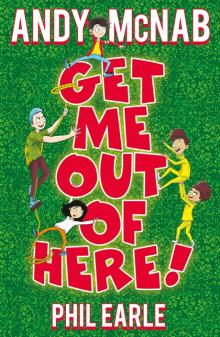 Get Me Out of Here!
Get Me Out of Here!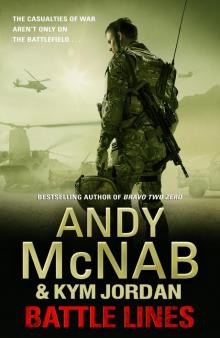 Battle Lines
Battle Lines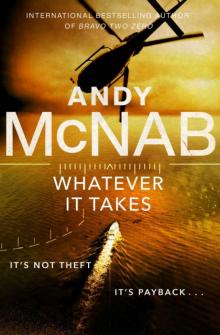 Whatever It Takes
Whatever It Takes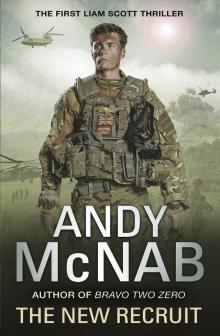 The New Recruit
The New Recruit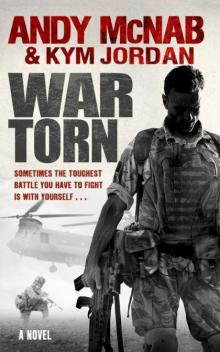 War Torn
War Torn Brute Force
Brute Force Crossfire
Crossfire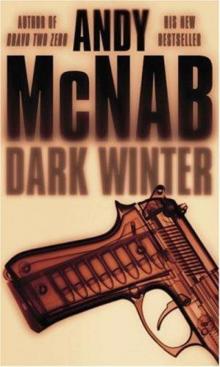 Dark Winter ns-6
Dark Winter ns-6 The Grey Man
The Grey Man Spoken from the Front
Spoken from the Front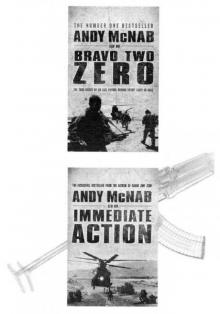 Meltdown
Meltdown Recoil
Recoil Nick Stone 1 - Remote Control.
Nick Stone 1 - Remote Control.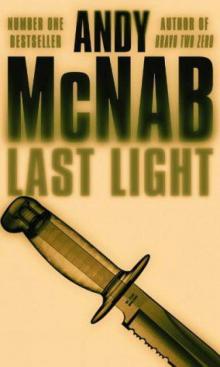 Last Light ns-4
Last Light ns-4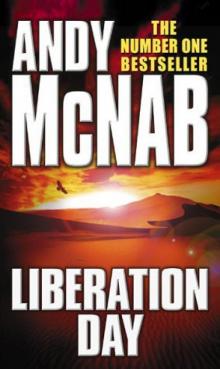 Liberation day
Liberation day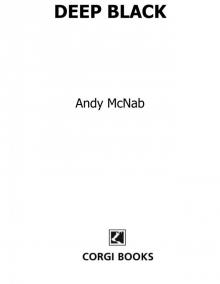 Deep Black
Deep Black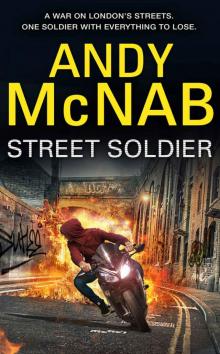 Street Soldier
Street Soldier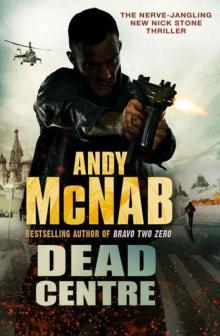 Dead Centre ns-14
Dead Centre ns-14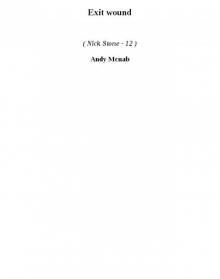 Exit wound ns-12
Exit wound ns-12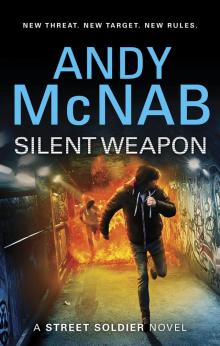 Silent Weapon
Silent Weapon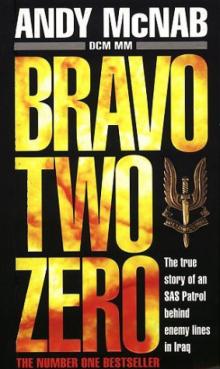 Bravo two zero
Bravo two zero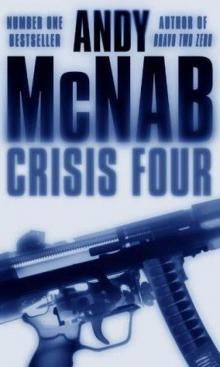 Crisis Four ns-2
Crisis Four ns-2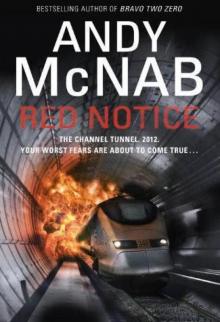 Red Notice
Red Notice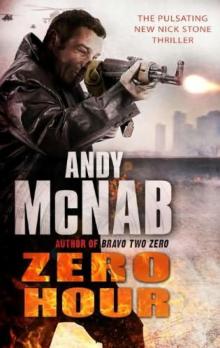 NS13 Zero Hour
NS13 Zero Hour Firewall
Firewall Last Light
Last Light Aggressor
Aggressor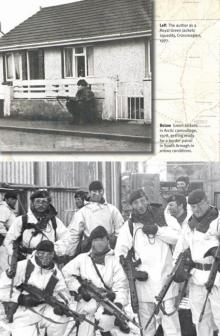 Seven Troop
Seven Troop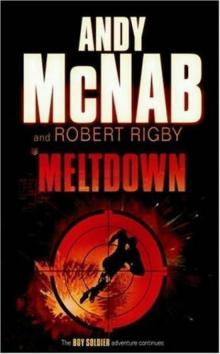 Meltdown bs-4
Meltdown bs-4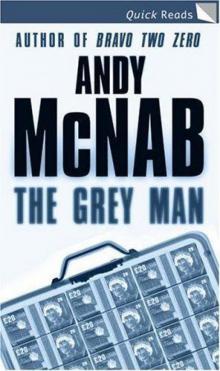 The Grey Man (quick reads)
The Grey Man (quick reads)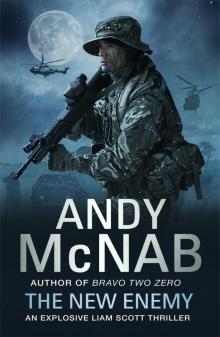 The New Enemy
The New Enemy Avenger
Avenger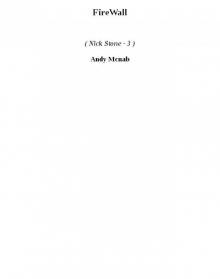 FireWall ns-3
FireWall ns-3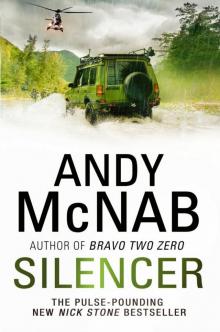 Silencer
Silencer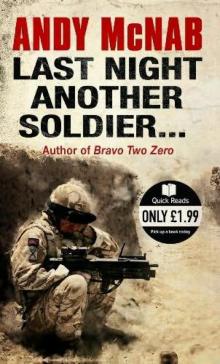 Last Night-Another Soldier…
Last Night-Another Soldier…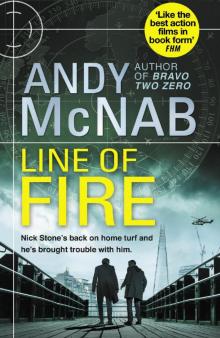 Line of Fire:
Line of Fire: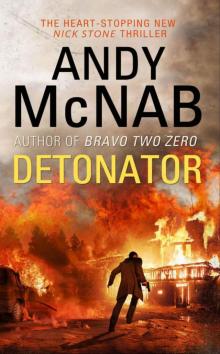 Detonator
Detonator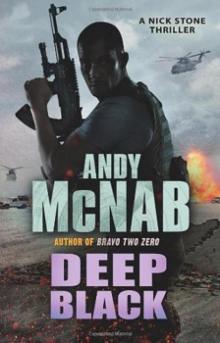 Deep Black ns-7
Deep Black ns-7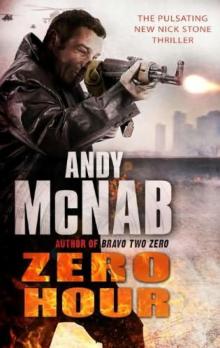 Zero Hour (2010) ns-13
Zero Hour (2010) ns-13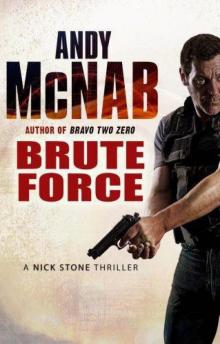 Brute Force ns-11
Brute Force ns-11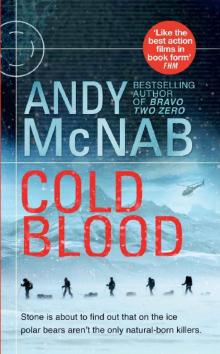 Cold Blood
Cold Blood Terminal Velocity
Terminal Velocity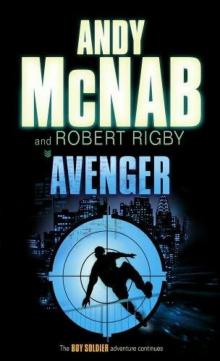 Avenger bs-3
Avenger bs-3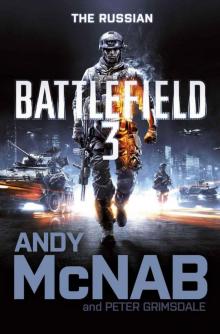 Battlefield 3: The Russian
Battlefield 3: The Russian DropZone
DropZone Zero Hour
Zero Hour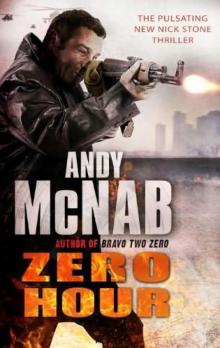 NS13 Zero Hour (2010)
NS13 Zero Hour (2010)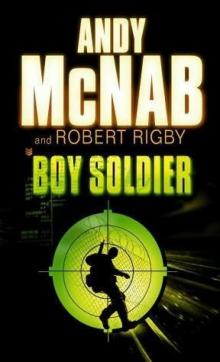 Boy soldier bs-1
Boy soldier bs-1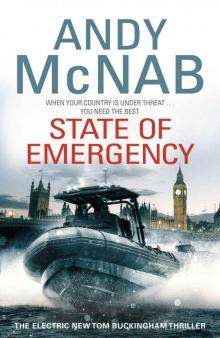 State Of Emergency: (Tom Buckingham Thriller 3)
State Of Emergency: (Tom Buckingham Thriller 3)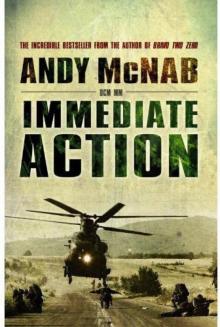 Immediate Action
Immediate Action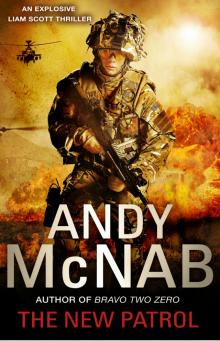 The New Patrol
The New Patrol Crisis Four
Crisis Four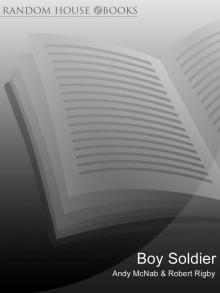 Boy Soldier
Boy Soldier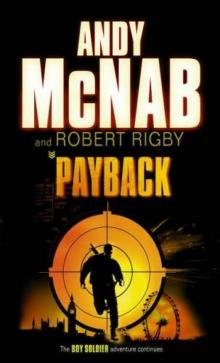 Payback bs-2
Payback bs-2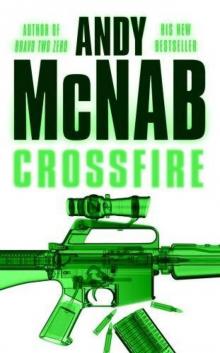 Crossfire ns-10
Crossfire ns-10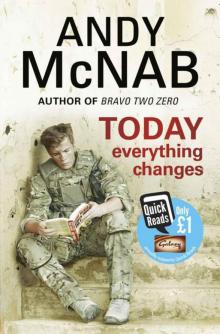 Today Everything Changes: Quick Read
Today Everything Changes: Quick Read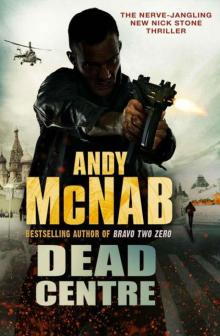 Dead Centre
Dead Centre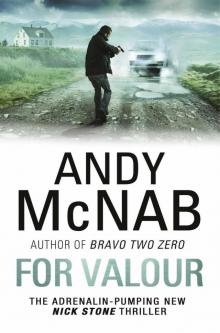 For Valour
For Valour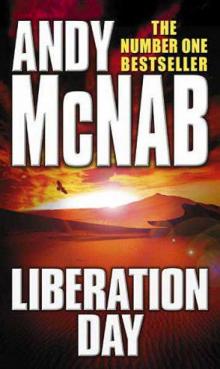 Liberation Day ns-5
Liberation Day ns-5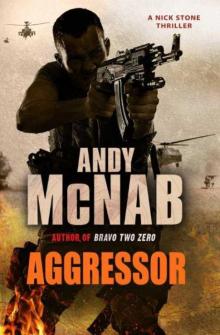 Aggressor ns-8
Aggressor ns-8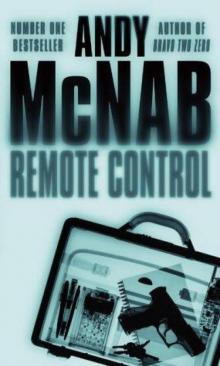 Remote Control ns-1
Remote Control ns-1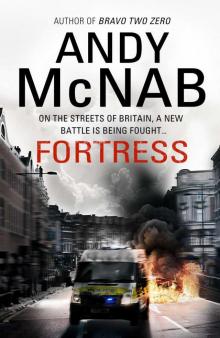 Fortress
Fortress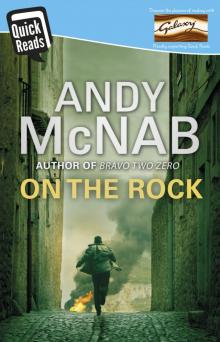 On the Rock
On the Rock Dark Winter
Dark Winter